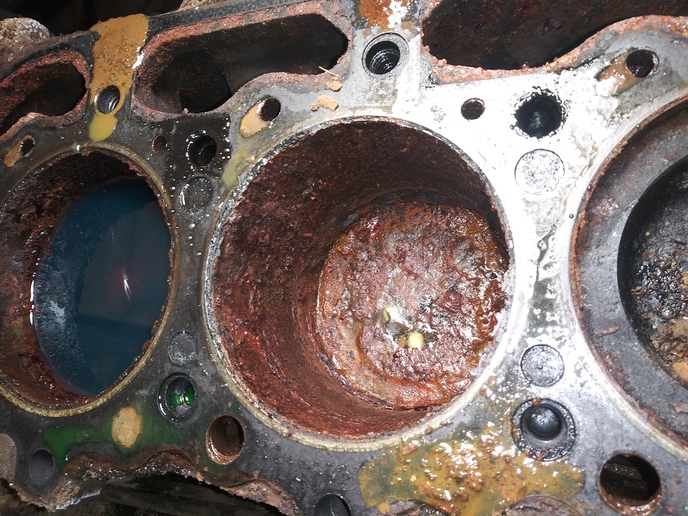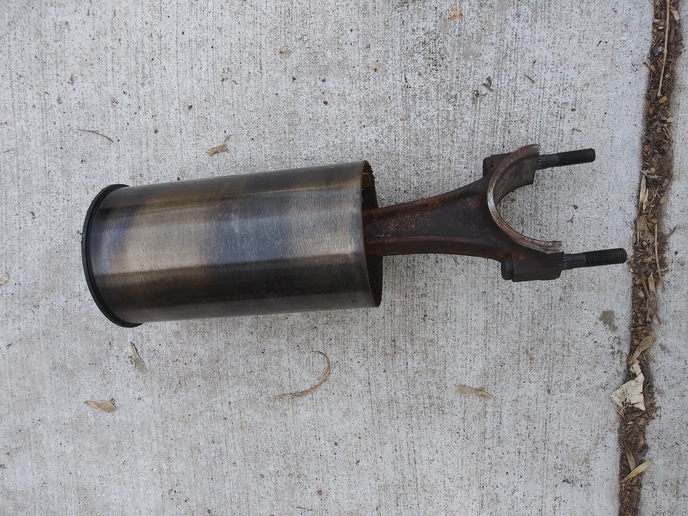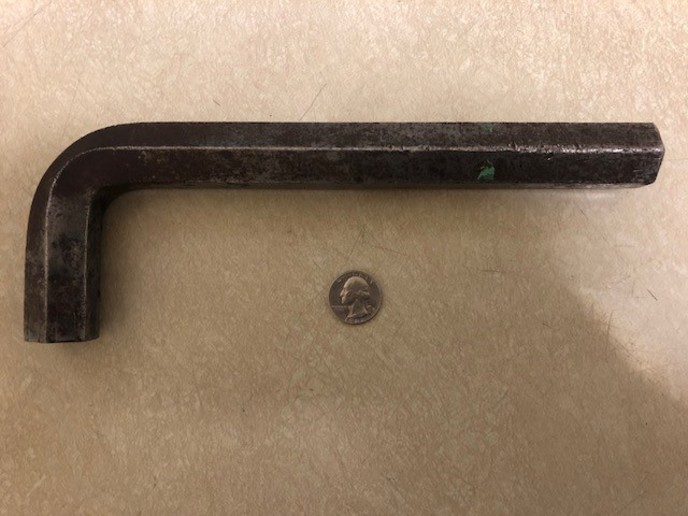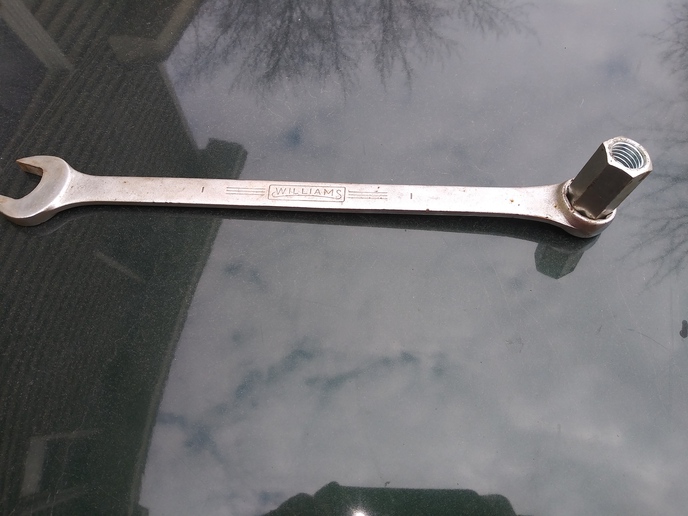Ultradog MN
Well-known Member
- Location
- Twin Cities
I posted a while ago about this gas 192 that was all fudged up from the stack being open for who knows how long.
This engine had previously been sleeved.
They are thin wall type.
With the crank out, I took a 5/4x2 chunk of teak lumber and a 3 lb hammer and was able to drive the sleeves out.
They came out fairly easy.
Looking at YT parts I see they sell a finished sleeve for these engines.
Is the OD of these sleeves a standard size? I'm wondering if I can just buy new sleeves and press them into this block.
Do finished sleeves need to be honed to size afterwards or are the bores close enough to use as is?
I just might use this old style block as as it is the same era as the tractor.
Thanks for any advice.


Sleeves
This engine had previously been sleeved.
They are thin wall type.
With the crank out, I took a 5/4x2 chunk of teak lumber and a 3 lb hammer and was able to drive the sleeves out.
They came out fairly easy.
Looking at YT parts I see they sell a finished sleeve for these engines.
Is the OD of these sleeves a standard size? I'm wondering if I can just buy new sleeves and press them into this block.
Do finished sleeves need to be honed to size afterwards or are the bores close enough to use as is?
I just might use this old style block as as it is the same era as the tractor.
Thanks for any advice.


Sleeves



